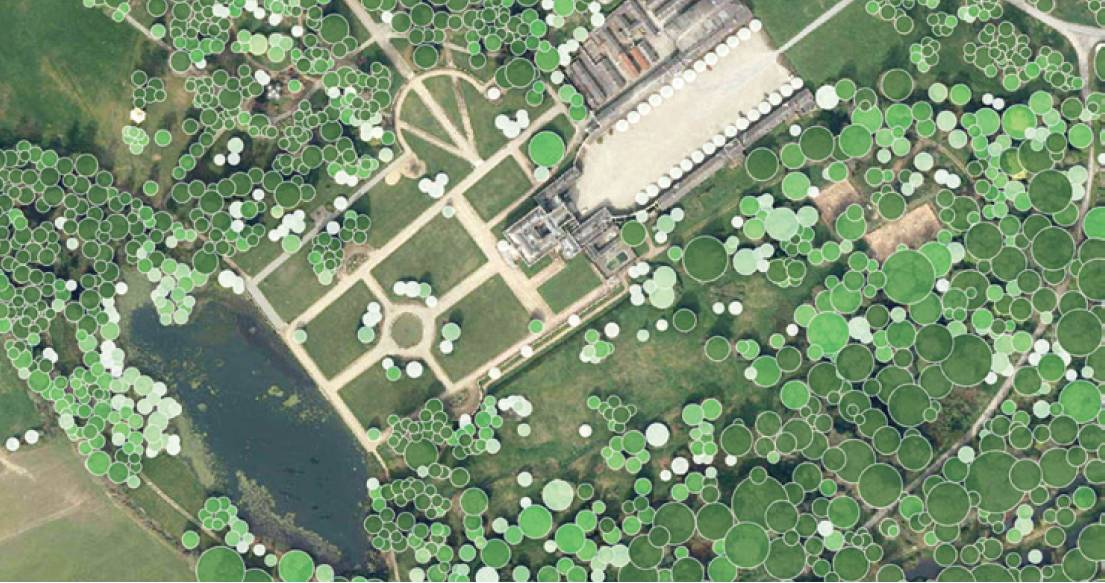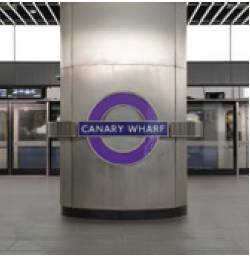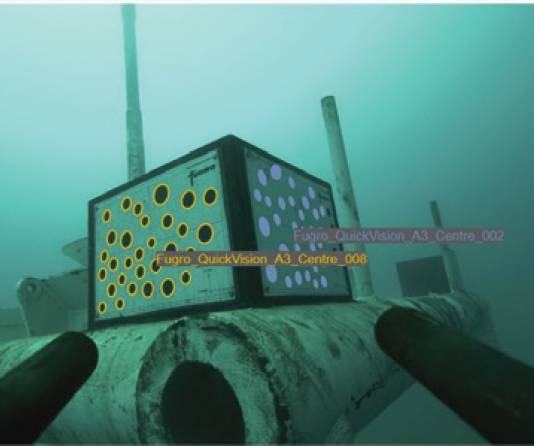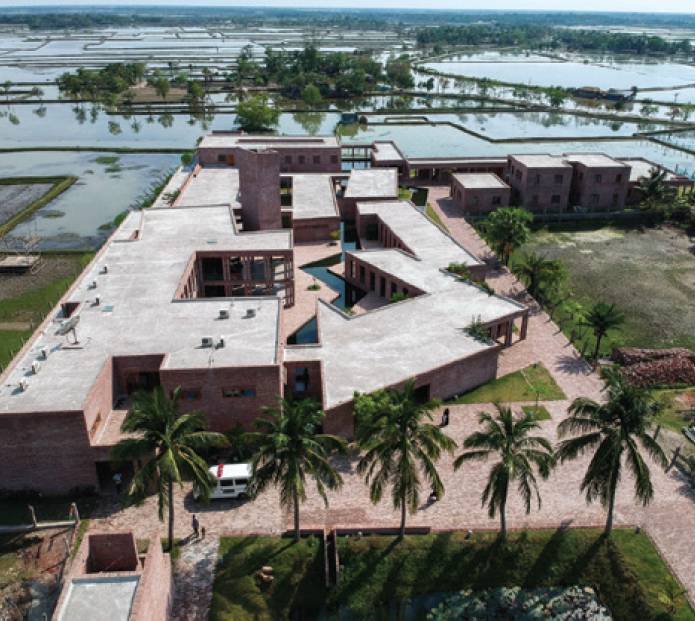Tree map helps to plan a carbon neutral future in Ireland
Data from Bluesky International’s National Tree Map is being used in Ireland by Waterford City and County Council to help benchmark current tree cover across the city and to look at suitable tree planting sites as it progresses with its target to become Ireland’s first decarbonised city. Derived from high-resolution aerial photography, Bluesky’s National Tree Map data is being used to inform policy and budgets at the council and is an integral part of the City and County Development Plan for 2020-2028.

Investigation into the implementation of IR35 tax reform
HMRC learned key lessons from the initial roll-out of IR35 tax reforms in the public sector, but faces new and challenging risks in implementing the regime more widely, according to the National Audit Office (NAO). HMRC’s key tool to help public bodies comply with the reforms, Check Employment Status for Tax (CEST), was launched in March 2017 and 2018 research found that nearly half of all surveyed bodies found the reforms difficult to comply with, and one of the most common reasons given was difficulties using CEST.
The 2020-21 financial statements of government departments and agencies include a total of £263m paid, owed, or expected to be owed for failing to administer IR35 reforms correctly. In all cases, HMRC found that the public body had not taken reasonable care to prevent errors, including when answering questions in CEST.
Gareth Davies, head of the NAO said: “The 2017 reforms to IR35 tax rules have achieved their primary purpose of reducing non-compliance. However, HMRC did not give public bodies sufficient time to prepare for the roll-out, and it was it highly likely that mistakes would be made. While key lessons were applied during the wider roll-out in 2021, inherent differences in labour markets create new challenges that HMRC will need to manage for the reforms to be a success.”

Canary Wharf becomes the penultimate Elizabeth line station transferred to TfL
Canary Wharf Elizabeth line station has been transferred to Transport for London (TfL), which means the station can be fully integrated with the operational network ahead of the Elizabeth line opening in the first half of 2022.
Nine out of the 10 central stations have now been transferred from Crossrail to TfL.
The Elizabeth line will help transform life and travel in London and the South East by dramatically improving transport links and accessibility, cutting journey times and providing additional capacity with spacious new stations and walk-through trains.
The new railway will provide new journey options and support wider regeneration, creating jobs, business opportunities and providing a huge economic boost.
It will also connect London’s major employment centres and increase central London rail capacity by 10%.
Assessment of UK geospatial data published
The Geospatial Commission has published an assessment of the UK’s geospatial data. The data is assessed against the FAIR (findable, accessible, interoperable and reusable) principles. FAIR is an internationally applied framework to structure and communicate data improvements and the report covers how FAIR is being adopted for the UK’s geospatial data held by the Geospatial Commission’s six partner bodies (British Geological Survey, Coal Authority, UK Hydrographic Office, HM Land Registry, Ordnance Survey and Valuation Office Agency).
The Geospatial Commission will work with partners to agree a Code of Practice for the implementation of FAIR data. The new Code of Practice will embrace the diversity of the geospatial market to ensure that, for UK geospatial data, FAIR is transparently and consistently applied.

Augmented reality camera supports safe subsea operations in Brazil’s Mero 2 project
Fugro’s QuickVision augmented reality camera, a touchless, vision-based approach is being used to carry out a subsea survey and positioning contract for Maersk Supply Service to support installation of an anchoring system for the floating production storage and offloading (FPSO) vessel Sepetiba in Petrobras’ deepwater Mero 2 project, offshore Brazil.
The camera system eliminates the need for staff to mount sensors on subsea assets, which in turn reduces offshore personnel needs, vessel time and carbon emissions.
These operations are scheduled to begin in Q1 2022 and last approximately four months.
In brief:
- Kent has been awarded engineering work for the V Net Zero (VNZ) Project by Harbour Energy, the UK’s largest independent oil and gas company.
- AYESA, an international technology and engineering services firm, has announced the acquisition of Irish-UK engineering consultancy ByrneLooby.
- Network Rail has awarded a design and delivery contract to Alstom as part of a £194m investment for the renewal of the signalling systems in the Cambridge area.
- KOREC has announced a new partnership with Italian company and monitoring specialists, Move Solutions.
- Yotta has joined forces with consultancy, Community Models, to help local authorities to make more informed decisions around highways investment, management and maintenance.
- Juniper Systems, a manufacturer of rugged handheld computers and GNSS receivers, has announced that its Uinta mapping and data collection software is now available for devices running on the Android operating system.
- Hitachi Construction Machinery (Europe) NV (HCME) is now offering its Zaxis-7 excavators ranging from 10 to 50 tonnes with factory- fitted 2D and 3D machine control solutions from Leica Geosystems, part of Hexagon.
Sensor breakthrough paves way for a groundbreaking map of world under Earth's surface
An object hidden below ground has been located using quantum technology – a long-awaited milestone with profound implications for industry, human knowledge and national security. University of Birmingham researchers from the UK National Quantum Technology Hub in Sensors and Timing have reported their achievement in Nature. It is the first in the world for a quantum gravity gradiometer outside of laboratory conditions.
The quantum gravity gradiometer, which was developed under a contract for the Ministry of Defence and in the UKRIfunded Gravity Pioneer project, was used to find a tunnel buried outdoors in realworld conditions 1m below the ground surface. The successful detection, realised in collaboration with civil engineers led by Professor Nicole Metje of the School of Engineering, is the culmination of a longterm development programme that has been closely linked to end-users from its outset.
This breakthrough will allow future gravity surveys to be cheaper, more reliable and delivered 10 times faster, reducing the time needed for surveys from a month to a few days. It has the potential to open a range of new applications for gravity survey, providing a new lens into the underground.
Standards matter – regulating engineering competence and commitment for building safety
Dame Judith Hackitt has stressed the need for competency, accountability and responsibility to be at the heart of the new building safety system, in order to rebuild the public’s trust in providing safe homes for people to live in. Speaking at the IET National Conference for Electrotechnical and Building Safety Competence in January this year, Dame Judith stated how the focus must be on delivering quality buildings that are safe, with genuine engagement with residents needed to rebuild trust: “competence and quality assurance must become part of the new culture across the whole of construction.”
The Engineering Council plays a crucial role setting the internationally-recognised standards for professional registration. Following Dame Judith’s comments, Engineering Council CEO Alasdair Coates explained: “The Engineering Council’s vision is to maintain society’s confidence and trust in the engineering profession.
Professional registration is important because standards matter – particularly in safety-critical areas of work, the public has a right to expect engineers to be able to demonstrate their competence and behave in an ethical, sustainable way.”
UK engineering community urged to think ethics before action in new report
A new report, ‘Engineering Ethics: maintaining society’s trust in the engineering profession’, has been published to ensure that ethical culture and practice become embedded in the engineering profession in the same way as health and safety considerations. The pan-profession report has been produced by the joint Engineering Ethics Reference Group, established in 2019 by the Royal Academy of Engineering and the Engineering Council, and includes a roadmap of short, medium and long-term actions to embed ethical best practice.
At the heart of the report is the need to retain public confidence in the ethical behaviour of engineers. Professor David Bogle FIChemE FREng, chair of the Engineering Ethics Reference Group, said: “Engineers act in the service of society, making decisions that affect everyone, from small-scale technical choices to major strategic decisions that can affect the lives of millions and even the future of our planet. We want to make sure that ethical practice is at the heart of all these decisions”. The report can be found at www.raeng.org.uk/publications/reports/engineering-ethics-full-report

Hospital wins RIBA International Prize
A remote community hospital, set in the water-laden landscape of the Bengal in south-west Bangladesh, designed by Kashef Chowdhury/URBANA, has won the RIBA International Prize 2021.
The Friendship Hospital is a sustainable and low-cost hospital that delivers essential healthcare services to the local communities of Satkhira in the southern region of Bangladesh, providing a medical lifeline for thousands of people in an area of the coast that was heavily affected by a major cyclone in 2007.
Lauded for the care and humanity at the heart of its design, the building responds innovatively to the challenging environmental conditions of the Bengal, a fragile and dynamic environment, directly impacted, without protection, to rising sea levels.
Ocean Decade Alliance to advance global marine science agenda
The Ocean Decade Alliance comprises an eminent network of global leaders and institutions and aims to catalyse support for the United Nations Decade of Ocean Science for Sustainable Development 2021-2030 through targeted resource mobilisation, networking and influence.
The alliance leverages existing commitments to raise awareness about Ocean Decade objectives and activities worldwide; creates a platform for demonstrating the role and power of science in providing solutions for ocean sustainability; and establishes a broad international network that stimulates additional actions and commitments in the framework of the Ocean Decade across all levels of society.
